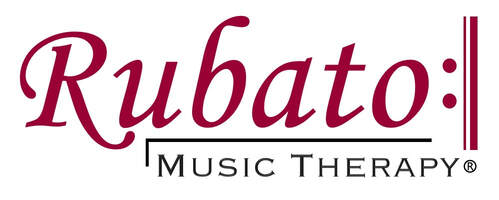Welcome to the Rubato Music Therapy Blog!
A resource for music therapists, music educators, and other professionals who work with individuals with intellectual disabilities, as well as their families and care providers.
|
What is your role? BalanceIn order to be a good teacher, you must balance praise and constructive criticism. If you find yourself giving lots of pointers without acknowledging what a student has accomplished, try starting with a 1:1 ratio. For example, say "You played all of the notes correctly (praise), but let's work on the rhythms some more (criticism)." The praise lets the student know what they are doing right and reinforces those skills. It also helps to decrease the student's frustration by tempering whatever suggestions you are about to make. The criticism itself is a necessary part of the teacher's role in guiding students and helping them to improve. You do not need to point out every mistake; pick one or two skills to focus on, and build as you go. It is more important to work on playing the correct notes and rhythms, before worrying about things like fingering or dynamics or articulation. HonestyBe honest about students' mistakes. If a student does not demonstrate competence, please do not inflate their ego with praise that they have not earned. If a student expresses a dream (such as becoming a famous singer) that is unrealistic given their current skills and rate of progress, you will be doing them a favor if you help them to set realistic expectations for themselves. This is true for both music educators and music therapists.
Inform them about what is required in order to be a professional musician and remind them that they need to master certain skills first. Wording is key. For example, say, "It takes a lot of time and practice to become a professional singer, as well as luck. Not everybody who wants to be a singer will get to be a singer. Singers need to be able to sing the right words and the right notes to the song. You are doing a great job singing the right words, but not the right notes, so we need to work on matching pitch." Another approach is to give noncommital responses such as "A lot of people want to be famous singers" or "I can tell how much you enjoy singing." That being said, the majority of people who learn how to play an instrument do so because it's fun, not because they plan on being performers. Providing career advice is one thing, but please do not ever discourage someone from music-making itself. We all have the right to find what brings us joy, and to make music. I know so many adults who never sing because they are afraid of what others will think. Usually, it's because someone told them that they "weren't good" when they were younger. Children in particular are there to learn, but are very sensitive to criticism. Some exhibit talent at an early age, while others require more time. All students deserve opportunities to learn. How can anyone be expected to improve if they don't have a chance to practice? NEVER use the word "never" with a student, or tell them that they "cannot" do something. Remember that nobody is perfect (including you, the teacher!), and that everybody has different strengths and challenges. You never know what someone is capable of. I have worked with families whose doctors insisted that their baby would never talk, walk, play an instrument, etc...and the doctor was wrong. The majority of people CAN sing and play instruments (whether or not they do those things well is an aesthetic question). Our job as teachers is to help our students to be the best that they can be, and the students themselves will push that bar higher and higher.
0 Comments
Your comment will be posted after it is approved.
Leave a Reply. |
AuthorKirstie Gallacher-Ang, MT-BC Archives
June 2020
Categories
All
|
Hours |
Call or Text |
|
|
Please contact for current availability.
|
(714) 364-7561
|
